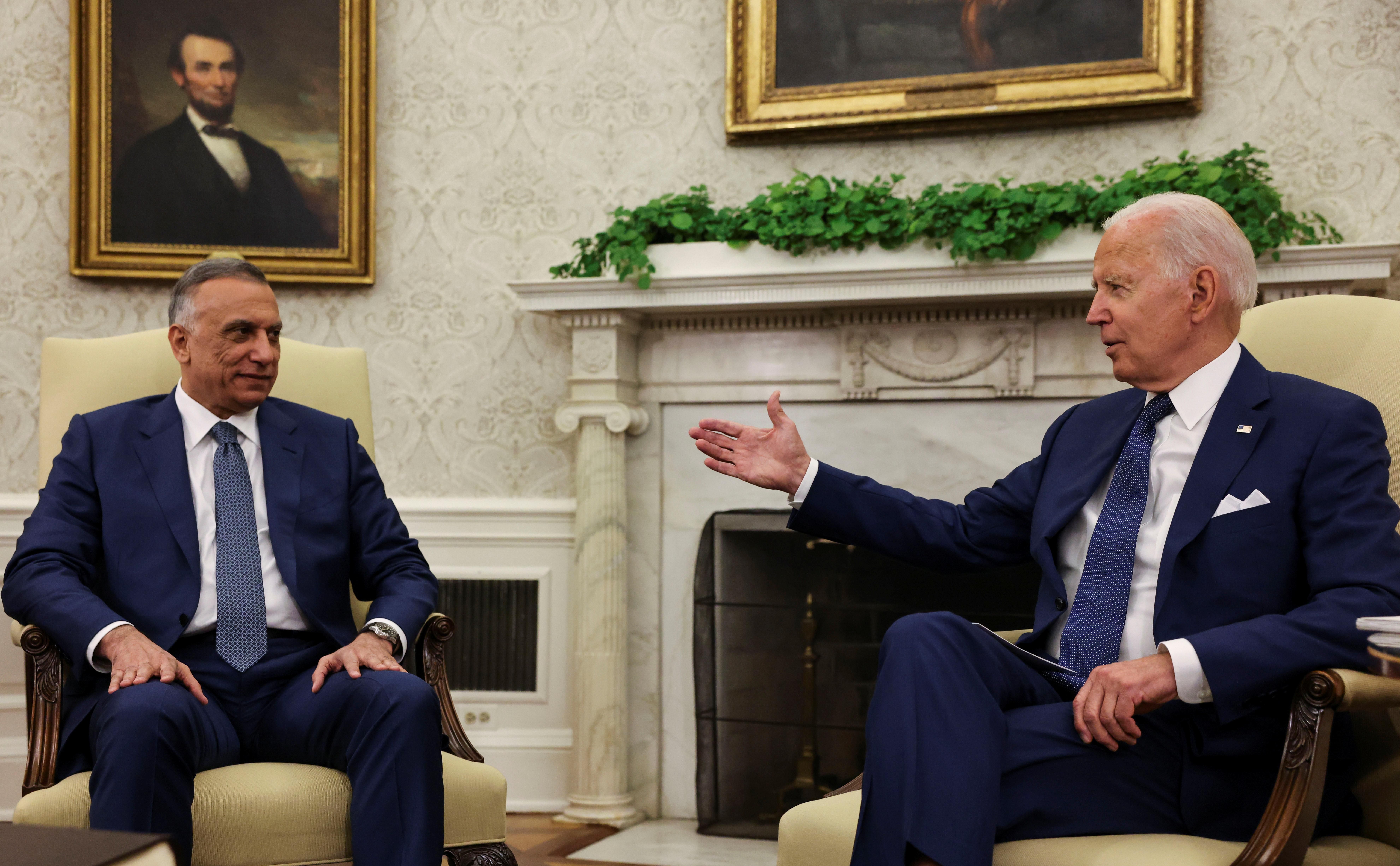What We're Watching: Iraq's PM at the White House, France's vaccine passport, US bombs the Taliban
Iraqi PM's face-to-face with Biden: Mustafa al-Kadhimi, Iraq's prime minister, met with President Biden at the White House Monday to discuss the future of US troops in Iraq. The US still has about 2,500 troops stationed in Iraq to engage in "counterterrorism" operations and train Iraqi forces. In an interview published this week, al-Kadhimi called for the withdrawal of all US combat troops, because, he said, Iraqi forces have proven capable of fighting ISIS militants on their own. (Just last week, some 30 Iraqis were killed when ISIS militants attacked a busy Baghdad market.) Al-Kadhimi still wants non-combat US troops to stay on in a training capacity. He became PM in 2020 as a consensus candidate after nationwide protests over corruption and joblessness forced the resignation of the unpopular previous government. At least 500 protesters were killed during a crackdown by Iraqi security forces, fueling demands for fresh elections, which are set to take place this October. The green PM has a tough job: he has to juggle relations with the Biden administration, which just pledged $155 million in aid to Iraq, and ties with Tehran, an influential player in Iraqi politics. (Iraq relies on Iran for energy imports, and Iran-backed militias inside Iraq are a force to be reckoned with.) Local sentiment has soured on the US presence as Iraqis resent being caught in the middle of US-Iran fights inside Iraqi territory.
France's vaccine passport: Despite noisy protests from tens of thousands of people in Paris and across France over the weekend, France's parliament on Monday approved a law on vaccination against COVID. As of August 1, people will need proof of vaccination, or a negative COVID test, to enter restaurants, bars, and other gathering places. As of September 15, any healthcare worker who has not been vaccinated is subject to suspension (but not firing) from work. These new rules will expire on November 15. France's constitutional court has not yet ruled on this law. Despite the show of anger in the streets, President Emmanuel Macron stands on firm political ground on this issue. A poll published in France two weeks ago found that more than three-quarters of those surveyed favored required vaccination for health workers, and a majority supported the passport for public venues. Since Macron announced this plan on July 12, the percentage of fully vaccinated people in France has jumped eight points to 48 percent.
US steps up Taliban strikes: As the Taliban continue to make significant territorial gains across Afghanistan, the US military changed tack in recent days, stepping up air raids against Taliban strongholds in coordination with Afghan security forces. This comes as the US withdrawal from Afghanistan is almost complete. Tellingly, the Pentagon also acknowledged over the weekend that it was impossible to stave off Taliban advancements in many places and that the Afghan army should "choose its battles" and prioritize the security of certain population areas, like Kabul, the capital. Last month, the US military warned that Afghanistan could fall under complete Taliban control within six months of the US withdrawal, and trends already look dire: More than 270,000 Afghans have fled their homes this year as the security situation deteriorates. Still, the White House says the US could wrap up its withdrawal as soon as next month.
